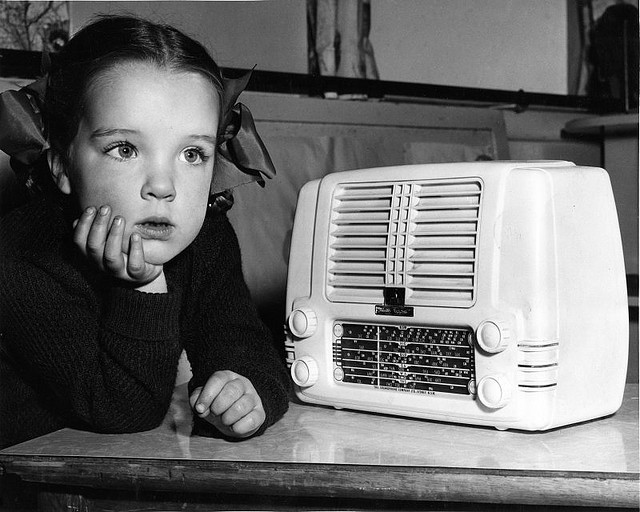
Gutting Radio Australia and killing the international TV service is bad, sad and mad.
Bad: Lopping 60% from the ABC's international service is lousy for the national interest. A strategic asset in Asia and the South Pacific is being
muted with little consideration of the regional implications.
Sad: The sadness is for wonderful journalists and broadcasters being fired; at the infanticide of a TV service that had shown achievements to match its potential; and at the savage cuts to Radio Australia, a 75-year-old institution that still serves as the daily newspaper for the South Pacific.
Mad: The madness is the lack of any reason or logic in this tragedy for Australian regional interests. The government visits vengeance on the ABC, acting on the words of John Howard's consigliere, Graham Morris: 'The ABC is our enemy talking to our friends.' The ideological warriors fail to understand that Morris was also paying a backhanded compliment to the ABC's unique role in the Australian debate and landscape, with Aunty's deep roots in rural, regional, urban and city lives.
Seeking to restrict the ABC's domestic influence, the Abbott government has instead harmed Australia's influence beyond our shores. This first-term Coalition government is repeating the mistake of its predecessor. The first-term Howard government's effort to 'get' the ABC caused the halving of Radio Australia; domestic politics plays out as poor international strategy.
As the 80 journalists and broadcast staff prepare for employment execution, they can take gallows comfort that they were not the intended ABC target, just victims of a gang that couldn't shoot straight.
The dramatic illustration of the Howard-era mistake was that as Radio Australia turned off its powerful Darwin transmitters, Suharto fell. Suddenly Oz was desperate for ways to talk to the new Indonesia. Building on that irony, much later in the life of the Howard government, Alexander Downer pushed for, and funded, the TV service now being crushed. Downer used to joke that he deserved a statue in the ABC's Southbank HQ; my return jest was that the statue was commissioned but we couldn't decide the plinth height.
To underline how the Liberals are trashing their own creations, note the 1939 broadcast on Radio Australia's foundation by Prime Minister Robert Menzies: ‘The time has come to speak for ourselves.’ As a statement of Australia's regional interests, it remains as true today as it was then.
I must confess I am an old Radio Australia lag. After five years with a fine newspaper, I joined RA in 1975 and had a marvellous time as a correspondent, in Canberra and overseas, until I retired from RA in 2008. Leaving, I was deeply touched to be given an emeritus title as RA's associate editor for the Asia Pacific. To my shame, I have done little emeritusing, but it ranks among the great honours of this hack's adventure.
The way debate runs these days, this history means I can be labelled the most biased of witnesses. Thus, in praising the journalism of the ABC's international service, I offer my credentials as a graduate of the first, great Murdoch newspaper. I got much of what I know about journalism at the same place as Rupert Murdoch—
The Herald, Flinders Street, Melbourne.
My days as a copy boy and later reporter began under the steady gaze of the bust of Sir Keith Murdoch in the foyer. His spirit walked the floors and deeply influenced the understanding of what a great newspaper should be.
Sir Keith's politics and editorials were always conservative—outside Parliament, he was a key player pushing for Menzies to become PM the first time—but he produced newspapers for the broadest church of Oz. He demanded straight, accurate journalism that could be read and trusted by anyone from socialite to socialist. My understanding of that tradition informs my view of the ABC as a fine and strong expression of Australian journalism.
Look at what Australia will lose by reducing Radio Australia to bare bones. The starvation of the language services hurts our ability to talk to the region in the local voice. The Tok Pisin service to Papua New Guinea will be cut to three people. Three! And this is PNG where radio still matters.
Likewise, the Bahasa Indonesia service for Indonesia is falling to just three people (during the Suharto era it was more than 20). Shortwave doesn't matter in Indonesia now but the exploding social media space is fertile ground for a brand like Radio Australia. A foreign service offering strong, accurate journalism still has a chance in an Indonesian media scene where, as Ross Tapsell
writes, 'the owners of the largest outlets have direct affiliations with political parties and have themselves been presidential candidates'.
In the South Pacific, RA is going to continue producing the equivalent of the region's morning paper with its Pacific Beat program. A pesky truth of media, however, is that doing journalism requires journalists. Much of what RA will now offer the South Pacific will be sourced from the domestic ABC. All those wonderful FM transmitters Australia has built in the Island capitals will be beaming out stuff about Oz. We’ll be talking to the region, but not with the region.
Given the cash lavished on expanding China's CCTV
as an international service, this is an excellent opening for a rich new player. Consider that as an example of poor strategic thinking: Australia joins New Zealand in gutting its Pacific service and in marches China.
That’s more than bad, sad and mad—it's plain dumb.
Graeme Dobell is the ASPI journalist fellow. Image courtesy of Flickr user Australian Broadcasting Corporation. Print This Post
Print This Post